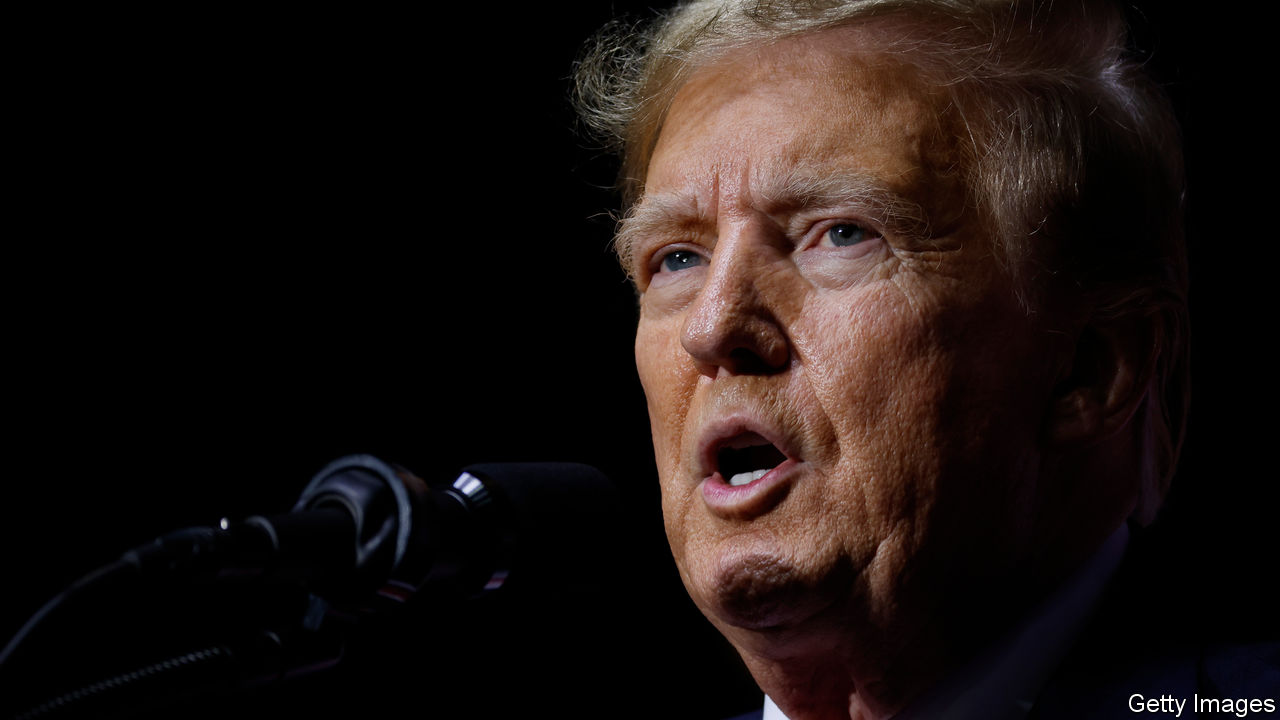James Bennet, our Lexington columnist, considers the difficulty of defining Trumpism
“It’s not the Trump Party quite yet” was the headline on a Lexington column I wrote back in January. Well, it is now. Donald Trump has locked up the nomination. He has installed loyalists, including a daughter-in-law, atop the Republican National Committee, and Republican politicians who once resisted him, having capitulated, are flaunting his endorsement. Nikki Haley, former governor of South Carolina, ran a good campaign, but primary voters mostly rejected her message, which was basically that of the politician who defined the party from the 1980s into the Trump era, Ronald Reagan.
But I don’t think voters can be certain just what this new Republican Party stands for, because, as Mr Trump demonstrated in the past few days, he remains such an opportunistic and transactional politician. He suggested he favoured “cutting” entitlements, then insisted he would do no such thing, and he reversed a position he held as president: while in office he issued an executive order to ban TikTok, a social-media app, if its Chinese parent company, ByteDance, did not sell the app’s American operations. But this week he opposed a bipartisan bill in the House seeking the same outcome. The Economist endorsed the bill in this week’s issue.
Mr Trump explained that he wanted to combat a domestic adversary instead: “I don’t want Facebook, which cheated in the last Election, doing better,” he wrote on his own social-media platform, Truth Social, with his odd, or maybe Germanic, capitalisation. “They are a true Enemy of the People!” Later, he suggested another political rationale: a lot of young people love TikTok. A third possibility is that the former president is courting donations from a billionaire investor in TikTok; Mr Trump has denied discussing the app with him.
Whatever his motive, or mix of motives, none speaks to protecting Americans’ data or countering China. Yet Mr Trump said he still considers TikTok a national-security threat. It is this slipperiness about ends and means that makes Trumpism, unlike Reaganism, so hard to define apart from the man himself. Mr Trump calls himself pro-life, and he was able to appoint enough justices to overturn Roe v Wade, but what will his position on abortion be in the end? I wonder if he knows.
Despite having served a term Mr Trump still offers less a set of principles than a mush of private and public aspirations and interests. That is a squishy new foundation for the grand old party. The fact that House Republicans overwhelmingly ignored Mr Trump’s opposition and supported the ban suggests that, while they may bow to him as their political champion, they do not take him as seriously when it comes to policy. Let’s hope some can show similar sense when it comes to aid for Ukraine and other matters.

 Accounting1 week ago
Accounting1 week ago
 Economics1 week ago
Economics1 week ago
 Personal Finance1 week ago
Personal Finance1 week ago
 Accounting1 week ago
Accounting1 week ago
 Finance1 week ago
Finance1 week ago
 Economics1 week ago
Economics1 week ago
 Economics1 week ago
Economics1 week ago
 Economics1 week ago
Economics1 week ago





















